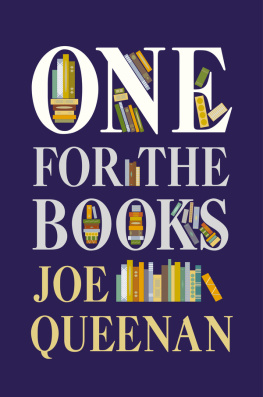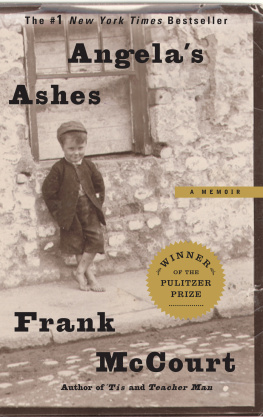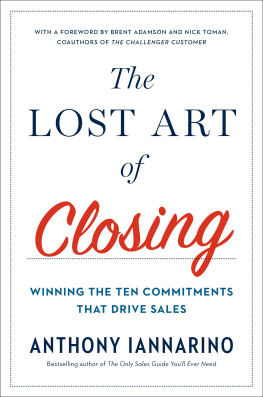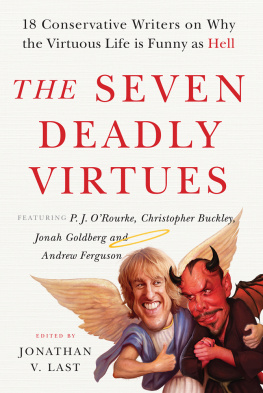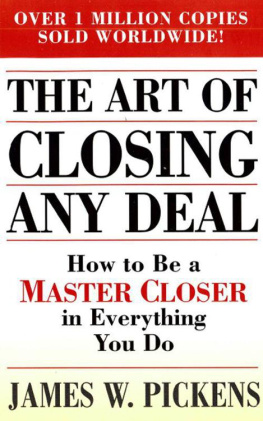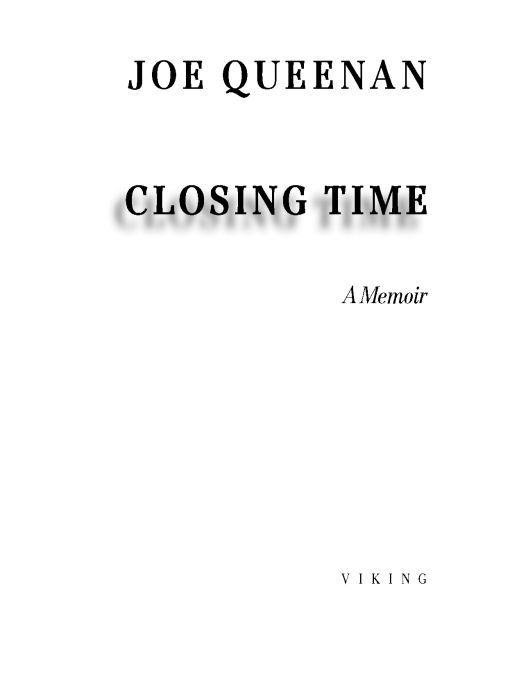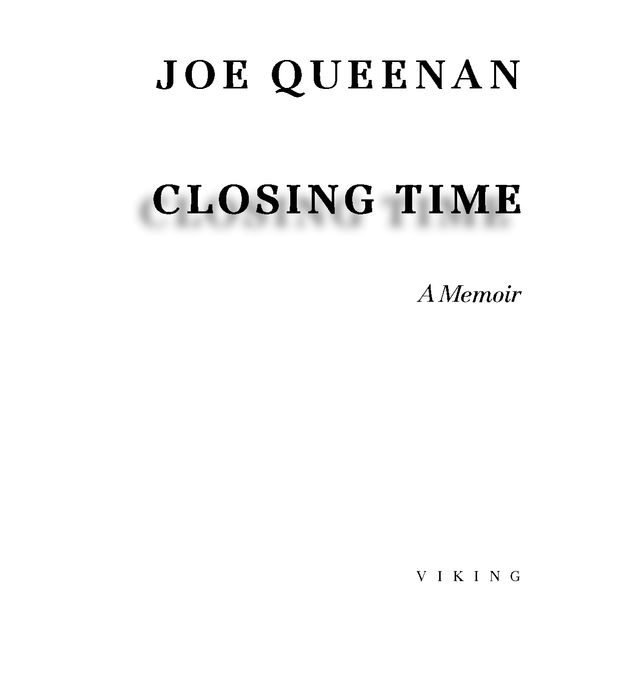Table of Contents
Books by Joe Queenan
Queenan Country: A Reluctant Anglophiles
Pilgrimage to the Mother Country
Balsamic Dreams: A Short but Self-Important
History of the Baby Boomer Generation
True Believers: The Tragic Inner Life of Sports Fans
My Goodness: A Cynics Short-Lived Search for Sainthood
Confessions of a Cineplex Heckler: Celluloid Tirades and Escapades
Red Lobster, White Trash, and the Blue Lagoon: Joe Queenans America
The Unkindest Cut: How a Hatchet-Man Critic Made His Own
$7,000 Movie and Put It All on His Credit Card
If Youre Talking to Me, Your Career Must Be in Trouble:
Movies, Mayhem, and Malice
Imperial Caddy: The Rise of Dan Quayle in America and
the Decline and Fall of Practically Everything Else
To Ree, Eileen, and Mary Ann
Some are Born to sweet delight,
Some are Born to Endless Night.
William Blake
Auguries of Innocence
Chapter 1.
The Man on the Roof
When a father dies, it is customary to forage through stored memories to conjure up an image that bathes him in the most heroic light. A single memory from my childhood eclipses all others. One Thursday night when I was thirteen years old, my father was standing alone in the kitchen of our Philadelphia row home, downing one of the ghastly local brews hed long fancied. He was talking to himself, delivering some variation on his stock O tempora, O mores peroration, deploring the latest indignities that vested interests had imposed on the working man. The engulfing darkness of the civil rights movement, the demise of the Big Bands, and the collapse of Holy Mother Church as a viable institution were his other standard themes. We never knew whether he thought that the rest of us were listening attentively or were merely indulging him. Though the truth is, he never really required much in the way of an audience; often, when he entered the Ciceronian mode, he was content to declaim to an empty room.
That night, something unexpected interrupted his jeremiad. Hearing tiny steps approaching, he looked up and realized that the swinging door connecting the dining room to the kitchen was about to smash my five-year-old sister in the face. The bottom of the door was solid woodthick but innocuousbut the pane above it was a taut sheet of rippled glass. This was the section that would have struck my sister right around eye level.
Mary Ann, his third daughter and fourth child, was chubby and angelic, the only member of the family everyone liked. She was, the rest of us contended, though she furiously denied it, a beneficiary of the Final Child Syndrome: Even parents who cannot stomach their firstborn children, deeming them conspirators in the massacre of their dreams, are reasonably indulgent toward, or at least oblivious to, the last one. This forbearance may derive from a sense of mutual relief that the procreative ordeal has finally run its course, or perhaps the capacity for rage has simply exhausted itself. But Mary Ann had another ace up her sleeve: She was fabulously cute. This being the case, the idea of seeing her face scarred forever was unthinkable.
Reaching out to shield his daughter from injury, my father grasped the edge of the door just as it was closing. In doing so, he trapped two of his fingers in the space between the jamb and the frame. The door swung shut; we heard him scream. His fingers were horribly mangled; it seemed at first that he might lose one. Suffering greatly, and making no secret of it, he was taken to the emergency room at nearby Germantown Hospital. We did not own a car at the time, as we were going through one of our fallow economic periods, and in any case my mother had never learned to drive. Next door to us lived a man my father always called Tex because he was tall, fat, blustery, and not terribly quick on the draw, though he was not actually from Texas. I suppose it was Tex who provided transport. My fathers mutilated fingers got patched up; he was given some painkillers; he returned home in great pain. He had been drinking heavily before he caught his fingers in the door, and he was certainly drinking heavily afterward.
At the time, my father was employed as a truck driver for a company called Bachman Pretzels. His job was to deliver boxes of potato chips, pretzels, and other savory snacks to supermarkets and grocery stores all over the Delaware Valley. The job didnt pay well and wasnt leading anywhere, but it was better than the ones he had held recently, and much better than the ones he would have later. His salary, which amounted to slightly more than the minimum wage, was not enough to support a family of six, which is why my mother, after a sixteen-year hiatus, would soon return to the workforce, corralling a job as a credit manager at the hospital where my father had been treated. This was the hospital where I had been born thirteen years earlier, the year the Reds invaded South Korea.
Every workday, my father would rise at six in the morning, shave, dress, then grab a trolley and two buses to the company warehouse several miles away. There he would load his truck and set out on his travels. His route was picturesque and varied, though not especially glamorous. A good number of his accounts were the wholesome, reliable A&P supermarkets that could then be found on half the street corners in America. He also serviced a number of tiny, not especially profitable independent grocery stores in South Philadelphia and several of the cavernous Center City automats operated by the Horn & Hardart company, an iconic chain that was once ubiquitous but is now forgotten. His job was to replace packages that had been sold since his last visit, remove merchandise that had passed its expiration date, and use guile, subterfuge, charm, or whatever delicate forms of intimidation he could muster to persuade his clients to give exotic new products a try. One of these cutting-edge novelties was the now-famous cheese curl, an audacious midcentury innovation whose triumph over entrenched municipal resistance to anything hoity-toity was by no means a foregone conclusion at the time.
The supermarkets he visited each week were in run-down North Philadelphia neighborhoods where it was inadvisable to linger after nightfall and not an especially good idea to loiter during the day. The grocery stores were mostly in featureless south Jersey hamlets or drab though not especially dangerous neighborhoods in Trenton. His only swanky accounts were the Union League of Philadelphiaa private club, founded in 1862 by local swells, that occupied a stately brownstone on historic Broad Streetand the spiffy downtown headquarters of the Philadelphia Savings Fund Society, which at that time was the second-tallest building in the city. Back then, a city edictor perhaps merely a time-honored traditiondecreed that no building could stand taller than the peak of the surprisingly ritzy hat crowning William Penns head atop Philadelphias anachronistic yet oddly beautiful City Hall.
This may have been because the city fathers feared that if Philadelphia ever forswore its conservative Quaker roots and developed a skyline, it would turn into New York. Philadelphians were both contemptuous and jealous of New Yorkers; they hated them personally but envied them their storied metropolis. Philadelphians believed that New York was a great city whose inhabitants had done nothing to deserve it. They resented New Yorks lycanthropic relationship with the rest of the country, feasting as it did on the fresh victims who poured off the buses at the Port Authority each day, siphoning off all the talented, energetic young people who, had they stayed home in the hinterland, might have made cities like Philadelphia and Pittsburgh and Baltimore more like New York. This was an attitude that would become more pronounced later, when New Yorkers, against all odds, would become even less likable. But by that time, the City of Brotherly Love would have its own skyline.


